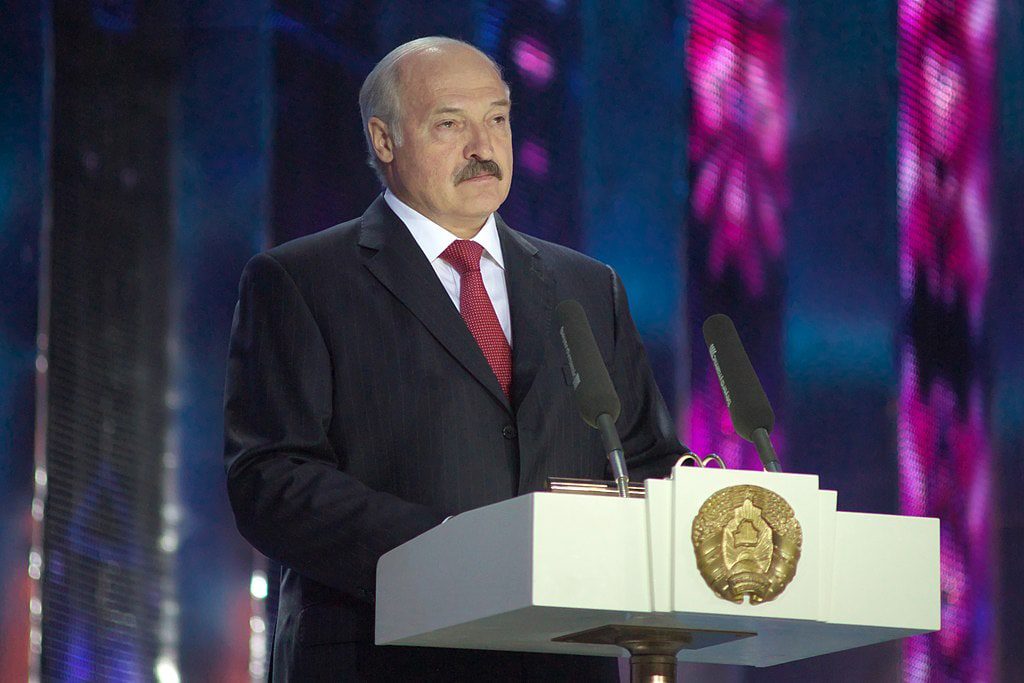
On Monday, the release of a draft document by Belarusian authorities proposing amendments to the Constitution bred domestic and international consternation.
Among the proposals are a return of limits on presidential terms (previously abolished under Lukashenko), allowing a president only two five-year terms in office. There’s a catch however. The restriction will only take effect once a “newly elected president” assumes office, which subsequently would give Lukashenko a chance to run for two more terms after his current term expires in 2025.
If passed, it is feared current President Alexander Lukashenko, long accused of being of the authoritarian persuasion, would be able to consolidate and extend his power, only leaving office in 2035 after reigning 41 years.
When asked for his opinion by the Associated Press, political analyst—and longtime detractor of Lukashenko’s dealings—Valery Karbalevich acknowledged as much, saying that Lukashenko“opened a path to the presidency for himself until at least 2035, when he will be 81 years old.”
Other changes under consideration include extending the Parliament’s term from four years to five, introducing the All-Belarusian People’s Assembly as a new body to operate laterally with Parliament, and granting former presidents immunity from prosecution over actions they took while in office. These measures have the appearance of a cynical ploy of Lukashenko’s, which would allow him to elude legal action leveled against him once he steps down.
The amendments also seek to do away with Belarus’s “neutrality” and “non-nuclear status.” Last month, Lukashenko offered to host Russia’s nuclear weapons should NATO move U.S. atomic weapons to Eastern Europe.
Having been made available to public review (and scrutiny), Belarusians are encouraged to provide feedback on the changes, which will be voted on during a referendum slated for February 2022. Criteria for approval would be met if 50% of the vote is in favor, when turnout percentages hit at least 50%.
Belarus, a former Soviet republic, has been under Lukashenko’s governance since 1994, and in that time has voted on three referendums. These abolished limits on presidential terms, amended the Constitution, and resurrected state symbols which harken back to the Soviet era.
Not coincidentally, the new proposals were hatched after the unprecedented mass protests of August 2020. These occurred in response to Lukashenko being awarded his sixth consecutive term in office. A crackdown swiftly followed, which saw 35,000 people arrested, thousands beaten by police, and many forced to flee their country in fear of persecution. The election’s handling was labeled a mockery of the democratic process by the opposition and the West. The European Union, the U.S., and several other countries have since refused to recognize Lukashenko as the legitimate leader of Belarus and called for new elections.
Lukashenko realized “that he lost the support of the majority of the country’s urban population,” Karbalevich pointed out during his interview to AP, adding that “the new governing body—the All-Belarusian People’s Assembly—was designed as a backup plan for the authoritarian leader if he is forced to step down as president.”
Karbalevich here refers to a stipulation in the proposals which states that a sitting president automatically becomes a delegate of the 1,200-seat Assembly and may even chair it, if elected by other delegates. The new body would meet at least once a year and be empowered to set policy directives, draft laws, suggest constitutional changes, elect members of the country’s Central Election Commission and judges of the country’s highest courts.
He went on to say that Lukashenko “designed the All-Belarusian Assembly for himself as a backup airfield in case of stepping down as president,” and that “in the proposed amendments we see a hybrid — both the opportunity to get reelected as president until 2035, and the opportunity to remain in power as a possible leader of the All-Belarusian Assembly.”
The Assembly can also approve deployment of Belarusian troops abroad if proposed by the president, and oust the president if the leader is found to be in violation of the constitution or to have committed high treason or another major crime.
Other commentators have drawn attention to its significance as well:
The draft of the updated Belarusian constitution has been published today (a thread). The main change is the introduction of the All-Belarusian People's Assembly (ABPA). It becomes the "supreme representative body of the people's power" (or rather Lukashenko’s safeguard) 1/ pic.twitter.com/ztEbVgMggI
— Tadeusz Giczan 🇺🇦 (@TadeuszGiczan) December 27, 2021
Sviatlana Tsikhanouskaya, Lukashenko’s most vocal critic and rival in the August 2020 election, who was pressured into leaving the country shortly after, took to Telegram to lambast the proposals.
“Belarusians are offered to choose between Lukashenko and Lukashenko. It’s a lie no one will believe in. Choosing between Lukashenko and Lukashenko is impossible. And we won’t choose him, like we didn’t choose him last year,” the opposition leader, now staying in Lithuania, said.
Tsikhnaouskaya added that “Lukashenko is trying to prescribe himself immunity from criminal prosecution, powers to strip Belarusians of their citizenship and appoint a new Politburo embodied in the All-Belarusian People’s Assembly that no one has elected.” She concluded by urging her fellow Belarusians to “cross all the proposed options off the ballot.”
Only a couple of weeks ago her husband Sergei Tikhanovsky had received a jail sentence of 18 years for “inciting hatred and social unrest.”
